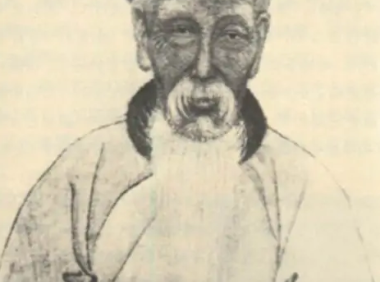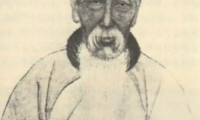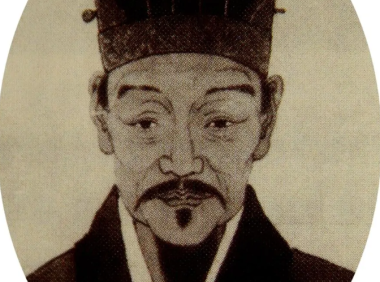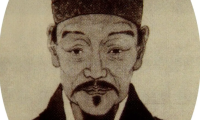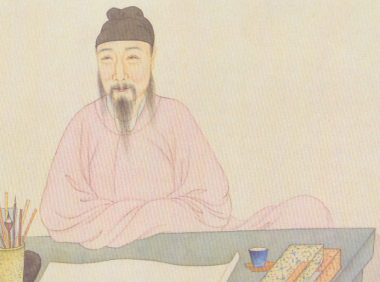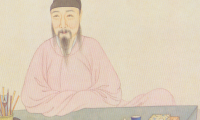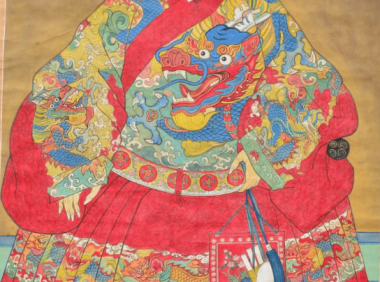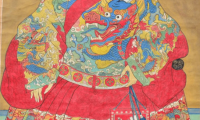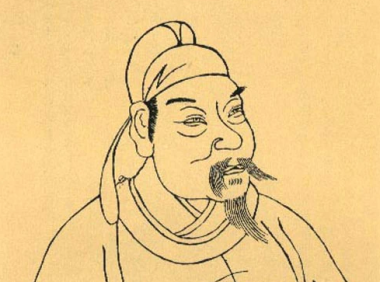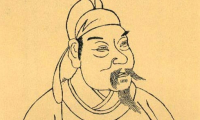-
Yuan Mei Poem: The Chickens – 袁枚《鸡》
鸡 [清]袁枚 养鸡纵[1]鸡食, 鸡肥乃烹之。 主人计自佳, 不可使鸡知。 注释: [1]纵:放纵,任凭。 The Chickens Yuan Mei The chickens eat their fill; They're boiled when fat they grow. The feeder's wise and will; Not let the chickens know. "Chicken" is a five-character quatrain written by Yuan Mei, a poet in the Qing Dynasty. This poem describes a chicken farmer who lets his chickens eat as much as they want, in order to fatten them up so that they can be killed. This plan is of course very clever, but the chickens must not know what he is doing. It contains a satire on the owner's sinister "deep heart" and a pity for the chickens' ignorance and misery. The poem conveys a deep understanding of interpersonal relationships in feudal society and contains a profound philosophy of life....
- 0
- 0
- 24
-
Li Zhi Poem: Sitting Alone – 李贽《独坐》
独坐 [明]李贽 有客开青眼[1], 无人问落花。 暖风熏细草, 凉月照晴沙。 客久翻疑梦, 朋来不忆家。 琴书犹未整, 独坐送晚霞。 注释: [1]青眼:青眼看人是表示对人的重视或尊重,这里指接待朋友来访。 Sitting Alone Li Zhi[1] With friends I open wide my eyes; Friendless, I speak to falling flowers. The slender grass in warm wind sighs; On sparkling sand cool moonlight showers. Life seems a dream in countries strange; Companions make me forget home. My lute and books I won't arrange; I sit to see evening cloud roam. 注释: [1]The poet was an independent philosopher, put to death for his unconventional views. "Sitting Alone" is a five-character regulated verse written by Li Zhi, a thinker and writer in the Ming Dynasty. The first couplet describes the life of living alone, the second couplet describes the change of seasons and shows the scene of sitting alone all year round, the third couplet describes the reason for sitting alone, and the last couplet points out the theme of the quietness of living alone and the indifference of the mind. The whole poem shows the harmony between the author's soul and nature, and the verses are well-balanced and melancholy....
- 0
- 0
- 29
-
Tang Yin Poem: Reflections – 唐寅《感怀》
"Sentiment" is a poem written by Tang Yin, a scholar in the Ming Dynasty....
- 0
- 0
- 32
-
Wang Tingxiang Poem: Ancient Tombs – 王廷相《古陵》
古陵 [明]王廷相 古陵在蒿[1]下, 啼乌在蒿上。 陵中人不闻, 行客自惆怅[2]。 注释: [1]蒿:一种有特殊气味的植物。 [2]惆怅:伤感,愁闷,失意。 Ancient Tombs Wang Tingxiang Old tombs lie under withered grass; Over it cries the crow, alas! The dead within hear not its cry; Alone is grieved the passer-by. "Ancient Mausoleum" is a five-character quatrain. The first two lines of the poem take "Artemisia" as the central viewpoint, flowing up and down, looking down at the ancient mausoleum and looking up at the crying crows; the third line says that the people in the ancient mausoleum "cannot hear" and contrasts the traveler's emotion when hearing the sound; the poem ends with "the traveler is melancholy", the words are finished but the meaning is endless. The whole poem is deliberately open-minded but the emotion is doubly sad, the imagery is clear and the spirit is far-reaching, and it vividly depicts the image of a "traveler" who is melancholy alone....
- 0
- 0
- 36
-
李煜《破阵子》- The Lyrics of Li Yu – Chinese Poems – (Southern Tang)
Li Yu 破阵子 四十年来家国, 三千里地山河。 凤阁龙楼连霄汉, 玉树琼枝作烟萝。 几曾识干戈! 一旦归为臣虏, 沈腰潘鬓[1]消磨。 最是仓皇辞庙日, 教坊犹奏别离歌。 垂泪对宫娥。 前段回忆往事:第一句说时间。第二句说空间。第三、四句特写京城的宫苑,“凤阁龙楼”就是用彩色画了龙凤的宫殿楼阁,“连霄汉”是说楼台高耸,直冲九霄云外;“玉树琼枝”是形容御花园中的树木浓荫蔽日,万绿丛中露出金碧辉煌的亭台楼阁,连成一片,仿佛是树林中长出来的一般,朦朦胧胧,使人恍惚如入仙境。最后一句是说在这样美丽的王宫御园内长大的李后主,怎么会用武器打仗呢? 后段前两句写现实:忽然家破国亡,成了俘虏,过着囚禁生活,怎能不被折磨得变老变瘦呢?“沈腰”是指沈约的腰,沈约病了一百几十天,腰带常常要“移孔”,所以“沈腰”就是腰身消瘦的意思;“潘鬓”指潘岳斑白的头发,意思是变老了。最后三句又回忆城破国亡之日,自己不得不辞别供奉祖先神位的宗庙,而“教坊”的乐队却“不知亡国恨”,还照旧演奏起“别离歌”来,叫人听了怎能不心碎肠断,当着宫女的面,就流下了眼泪呢! 注释: [1]沈腰潘鬓:沈指沈约。指代身形日渐消瘦。潘:潘岳。后以潘鬓指代中年白发。 Dance of the Cavalry A reign of forty years O’er land and hills and streams, My royal palace scraping the celestial spheres, My shady forest looking deep like leafy dreams, What did I know of shields and spears? A captive now,I’m worn away: Thinner I grow,my hair turns grey. O how can I forget the hurried parting day, When by the music band the farewell songs were played And I shed tears before my palace maid!...
- 0
- 0
- 65
-
李煜《临江仙》- The Lyrics of Li Yu – Chinese Poems – (Southern Tang)
Li Yu 临江仙 樱桃落尽春归去, 蝶翻金粉双飞。 子规啼月小楼西, 玉钩罗幕, 惆怅暮烟垂。 别巷寂寥人散后, 望残烟草低迷。 (何时重听玉骢[1]嘶? 扑帘飞絮, 依约梦回时!) 前段第一句写景,说春天归去,好时光一去不复返,可能是城破国亡的象征。第二句的“金粉”指蝴蝶的金色翅膀,说蝴蝶“不知亡国恨”,还在比翼双飞呢。第三句的“子规”就是杜鹃,在西方是快乐的鸟,在我国却只发出哀鸣,常说“杜鹃啼血”,这里和蝴蝶形成对比。第四句的“罗幕”就是珠帘,表示王宫的华贵,和第五句的“暮烟”也形成了对比。珠帘、暮烟都戴上了惆怅的面纱。 后段第一句写近景,和前段第四句呼应,说不但珠帘垂下,门也掩上,因为人已散了,剩下的只有寂寥。第二句写远景,和前段第五句呼应,说暮烟沉沉,芳草萋萋,迷离恍惚,象征前途渺渺茫茫。往事不堪回首,什么时候才能再听到自己的骏马嘶鸣呢?最后看到帘外的飞絮随风飘荡,无枝可依,有家难归,象征着自己的命运,要回故园只有在梦中了。 词中后三句据《墨庄漫录》补。 注释: [1]玉骢:骏马。 Immortals at the River All cherries fallen,gone is spring; The golden butterflies waft on the wing. West of the bower at the moon the cuckoo cries; The screen of pearls sees dreary evening smoke rise. Loneliness reigns behind the closed door When the court is no more. I gaze on mist-veiled grass. When may I come back to hear my steed neigh?Alas! The willow down clings to the screen,it seems. My soul could only come back in dreams....
- 0
- 0
- 22
-
李煜《谢新恩》- The Lyrics of Li Yu – Chinese Poems – (Southern Tang)
Li Yu 谢新恩 樱花落尽阶前月, 象床愁倚薰笼。 远似去年今日, 恨还同。 双鬟不整云憔悴, 泪沾红抹胸[1]。 何处相思苦? 纱窗醉梦中。 这是一幅美人相思图。前段第一句写外景,“樱花”满地,表示春天就要过去,阶前只剩月光。第二句写内景,美人坐在象牙床上,斜靠着熏炉的笼子。第三句从空间转到时间,说明相思不止一年,更增加了愁恨的深度。 后段第一、二句是对美人外形的特写:头发没有梳妆,好像乱云一般,眼泪流得把贴身的内衣都沾湿了。第三句点明主题是“相思苦”。最后人和景物合而为一,仿佛纱窗也和美人一样,因愁而酒,因酒而醉,因醉而梦,梦中还为相思而苦,可以说是把相思写活了。 注释: [1]抹胸:肚兜。 Gratitude for New Bounties On moonlit steps,oh,all The cherry blossoms fall. Lounging upon her ivory bed,she looks sad For the same regret this day last year she had. Like languid cloud looks her dishevelled head; With tears is wet her corset red. For whom is she lovesick? Drunk,she dreams with the window curtain thick....
- 0
- 0
- 21













